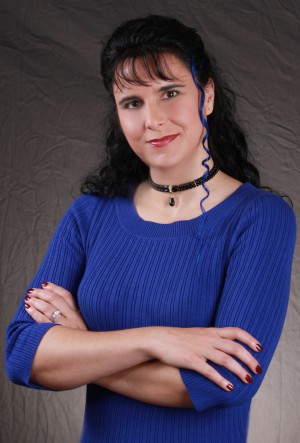A guest post by author consultant Barb Drozdowich
I’d like to thank Scott for inviting me to share some thoughts today.
I’ve published four books focused at helping authors. They cover a variety of subjects and basically represent needs that I see in my day job, teaching authors Wordpress and helping them with various social media issues.
Let me start by saying that I love working with authors every day! They create the books that feed my soul and my world would be pretty empty without them.
I often say that I think that it is sad that we expect authors to be jacks of all trades. Most of the authors that I meet do an incredible job of creating magical stories that we lose ourselves in. It’s not enough, however. As you all know, authors are now expected to wear all the book promotional hats.
Unreasonable.
That being said, we need to get on task. What do I feel are the three biggest mistakes that new authors make?
In my opinion, the first mistake that many authors make is they do not start building their author platform far enough in advance of publishing their books.
Ideally, authors should start working on their platform when they start writing their book. I’m not the only one to think this way. The blogosphere is filled with similar advice.
 |
| The platform: where the author begins the journey to success. Photo by Matt Cornock used under Creative Commons Attribution-NonCommerical 3.0 Unported License. |
I’ll take this advice one step further and suggest that your author platform consists of more than a blog, a Twitter account and a Facebook account. You want to make it as easy as possible for readers, both new and old, to find you. Google is the world’s largest search engine and because of that, Google+ must be part of your platform. You don’t need to understand the specifics of why, just know that Google+ will play a significant role in being found easier in Google searches.
The second mistake that authors make is ignoring the importance of presenting a professional face to the world.
The look of your blog and the cohesiveness of your branding across your books and your various social media platforms is very important in today’s book selling world. The attitude of “I’m just not very technologically advanced so people need to take me as they get me” doesn’t fly. This sort of author often has a blog that looks like a thrift store. It has sidebars stuffed with mismatched graphics and no discernible way to easily buy their books, or follow their blog.
If you want to be taken seriously as an author, you need to find a way look professional. Look at your site. Without scrolling down, can readers follow you on all your social media and buy at least one of your books? Isn’t that one of major reasons why you have a blog?
The third mistake that authors often make is not asking for qualified help for things that they don’t understand.
Authors take writing classes or go to writing retreats, but are reluctant to get help with the other aspects of publishing a book. Because of that reluctance, they try to do everything themselves, or they ask for help without qualifying the help.
I find that people who look for help, don’t ask the right questions. It seems logical that you would ask whether a putative consultant knows enough to help you with your particular question — but it’s more important whether that person understands the unique needs of an author? A blog can be a technological wonder, but if you can’t use it, what good is it?
If you are spending hours struggling with your blog or another part of your author platform, when are you writing? Isn’t it worth your time to get a few hours of instruction or a few hours of help so that you can spend more time on your next book?
Technical help doesn’t need to be expensive and it isn’t hard to find. What may be difficult to find is competent technical help. With the explosion of indie publishing, many people are hanging out a shingle and waiting to take your money. Choose carefully and ask a lot of questions!
Today’s book-selling world is global. You are selling your books to people around the world — not just the people you meet at your next book signing. Make sure that you are prepared to market your books to the world.
Barb Drozdowich
Social Media and Wordpress Consultant Barb Drozdowich has taught at Colleges and Universities, trained technical personnel in the banking industry and, most recently, used her expertise to help dozens of authors develop the social media platform needed to succeed in today’s fast evolving publishing world. She owns Bakerview Consulting and manages the popular Romance Book blog, Sugarbeat’s Books.
She has written four guidebooks in the Building Blocks to Author Success series:
- The Ultimate Goodreads Guide for Authors
- The Author’s Guide to Working with Book Bloggers
- Book Blog Tours: An Essential Marketing Tool for Authors
- Go Global: Building an International Author Platform that Sells.
Find Barb:


















